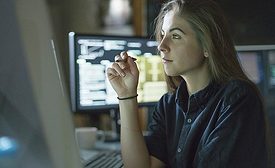Home » investigations
Articles Tagged with ''investigations''
How to Get in the Digital Evidence Fast Lane
How new digital evidence management systems are helping organizations speed up investigations and cut costs
July 31, 2018
Sign-up to receive top management & result-driven techniques in the industry.
Join over 20,000+ industry leaders who receive our premium content.
SIGN UP TODAY!Copyright ©2024. All Rights Reserved BNP Media.
Design, CMS, Hosting & Web Development :: ePublishing








